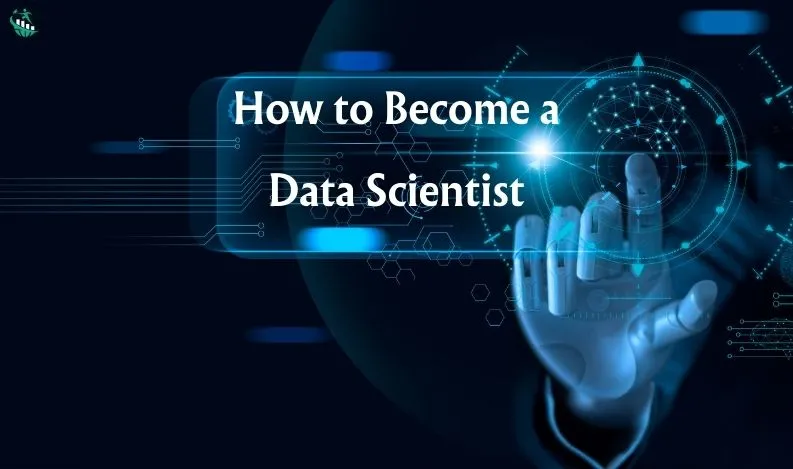
How to Become a Data Scientist: A Comprehensive Guide
In today's data-driven world, the role of a data scientist is becoming increasingly crucial across multiple industries. Businesses, governments, and non-profit organizations alike rely on data scientists to parse through massive amounts of data and extract actionable insights that can influence decisions and shape strategies. This guide delves deeply into the pathway to becoming a data scientist, detailing the educational background, skill development, and hands-on experience necessary to thrive in this dynamic field. Whether you're a student contemplating a career in data science or a professional aiming to transition into this field, this guide offers a step-by-step approach to achieving your goals and making a significant impact through the power of data analysis.
Step 1: Pursue an Undergraduate Data Science Degree
What to Expect in a Data Science Degree
Embarking on a journey towards a degree in data science involves immersing oneself in a diverse curriculum designed to equip students with the skills to tackle real-world data challenges. These programs typically blend theoretical knowledge in mathematics and statistics with practical applications in computer science. Students learn to manage, analyze, and interpret large datasets, using tools that range from Python and R programming languages to sophisticated data visualization software. The degree also focuses on developing algorithmic techniques and predictive models, crucial for making forecasts based on data. Through a combination of lectures, hands-on labs, and project-based assignments, students not only grasp the intricacies of data science but also prepare to apply this knowledge effectively in a professional setting.
Choosing the Right University
Selecting the right institution for pursuing a data science degree is a decision that should be informed by several key factors. Prospective students should evaluate universities based on the comprehensiveness of their data science programs, including the availability of cutting-edge resources and the expertise of the faculty. It's beneficial to choose a university that encourages practical experience through internships and collaborative projects with industries, as this real-world engagement is invaluable. Furthermore, an ideal university will foster a vibrant community of aspiring data scientists, offering clubs, seminars, and workshops where students can network with peers and industry professionals.
Step 2: Enhance Your Data Science Skills
Technical Skills You Need
The backbone of a successful data science career involves a robust set of technical skills. This includes proficiency in programming languages such as Python and R, which are essential for data manipulation and statistical analysis. Equally important is the ability to use SQL for database management and retrieval, and a familiarity with big data platforms like Apache Hadoop or Spark. Additionally, a data scientist must be skilled in data visualization tools such as Tableau, Power BI, or even more advanced programming tools that allow for the creation of interactive data visualizations. These technical skills are critical not only for analyzing data but also for effectively communicating findings to stakeholders who may not have a technical background.
Developing Transferable Skills
Technical skills aside, the efficacy of a data scientist also depends heavily on a range of transferable skills. Top among these is the ability to communicate complex ideas clearly and persuasively to non-technical audiences. This is where skills in storytelling with data become crucial. Problem-solving, critical thinking, and attention to detail are also vital, as data science often involves sifting through data to identify patterns, anomalies, and insights. Furthermore, teamwork and collaboration are essential, as most data science projects require cross-functional cooperation. Developing these skills can be facilitated by participating in group projects, internships, and real-world problem-solving scenarios during one’s academic and early professional life.
Step 3: Get a Data Science Certification
Why Certifications Matter
In a field as complex and ever-evolving as data science, certifications serve as a testament to a professional’s commitment to maintaining their competencies and staying abreast of the latest developments. They provide recognition from industry-respected bodies that attest to the holder's expertise and skills in specific areas of data science. For employers, certifications can simplify the hiring process by providing a clear benchmark of a candidate’s abilities.
Recommended Data Science Certifications
For those looking to enhance their qualifications, several certifications stand out. The Certified Analytics Professional (CAP) offers a broad validation of one’s ability to transform complex data into valuable insights and decisions. For more specialized skills, the AWS Certified Data Analytics Specialty demonstrates expertise in using Amazon Web Services to build and maintain analytics solutions. Similarly, certifications like Google's Professional Data Engineer or Microsoft Certified: Azure Data Scientist Associate confirm one’s ability to work with specific cloud environments, which are increasingly integral to modern data science operations.
Step 4: Earn a Master’s Degree in Data Science
The Value of a Master’s Degree
While not always necessary, a master’s degree in data science can dramatically elevate one’s understanding of advanced concepts and techniques in the field. These programs delve deeper into machine learning algorithms, advanced statistical methods, and complex data management systems, often incorporating the latest research and innovations. Graduates are typically well-prepared to take on leadership roles in data science projects, contributing not only technical expertise but strategic insights.
Selecting the Right Program
When choosing a master’s program, candidates should look for courses that offer a balance of theory and practical application. Programs that include capstone projects, internships, or opportunities for industry collaboration are particularly beneficial. Additionally, prospective students should consider the faculty's research interests and the program's network and reputation in the industry, as these can play significant roles in a graduate's career prospects.
Step 5: Excel in Data Science Tools
Essential Tools for Data Scientists
The toolbox of a data scientist is vast and varies depending on the specific area of data science one is engaged in. However, certain tools are ubiquitous in the field. Statistical software like SAS or R provides powerful options for data analysis, while programming with Python allows for extensive data manipulation. Machine learning tools such as TensorFlow or PyTorch enable the building and training of complex models, and platforms like Tableau or Power BI are used for making the insights gleanable and actionable. Mastery of these tools is essential for any data scientist looking to make an impact in their field.
Keeping Skills Up-to-Date
The landscape of data science is continually shifting, with new tools, techniques, and best practices emerging regularly. To remain relevant, data scientists must commit to lifelong learning. This might involve taking additional courses, attending workshops and conferences, and staying connected with the data science community through forums, blogs, and professional groups. Staying updated can also mean contributing to open-source projects or writing about recent trends and discoveries in data science.
Step 6: Start Your Data Science Career
Preparing Your Job Application
When entering the job market, a well-prepared application is your first opportunity to make a good impression. Your resume should showcase not only your education and certifications but also your practical experience and specific projects you have worked on. Tailoring your resume to highlight skills and experiences relevant to the job you're applying for can set you apart from other candidates.
Acing the Interview
Interviews for data science positions can be demanding, often involving both technical questions and practical tests such as coding exercises or case studies to solve on the spot. Preparation is key, involving a thorough review of common data science algorithms, methodologies, and case studies in your field. Moreover, be prepared to discuss previous projects in detail, particularly how you approached data-related problems and what insights or benefits were derived from your work.
Conclusion
Building a career in data science is both challenging and rewarding, offering opportunities to significantly impact various sectors by harnessing the power of data. By following these steps, continuously learning, and adapting to new technologies and methodologies, aspiring data scientists can achieve success and become leaders in this dynamic field.
Also Read:-








Recent Comments: